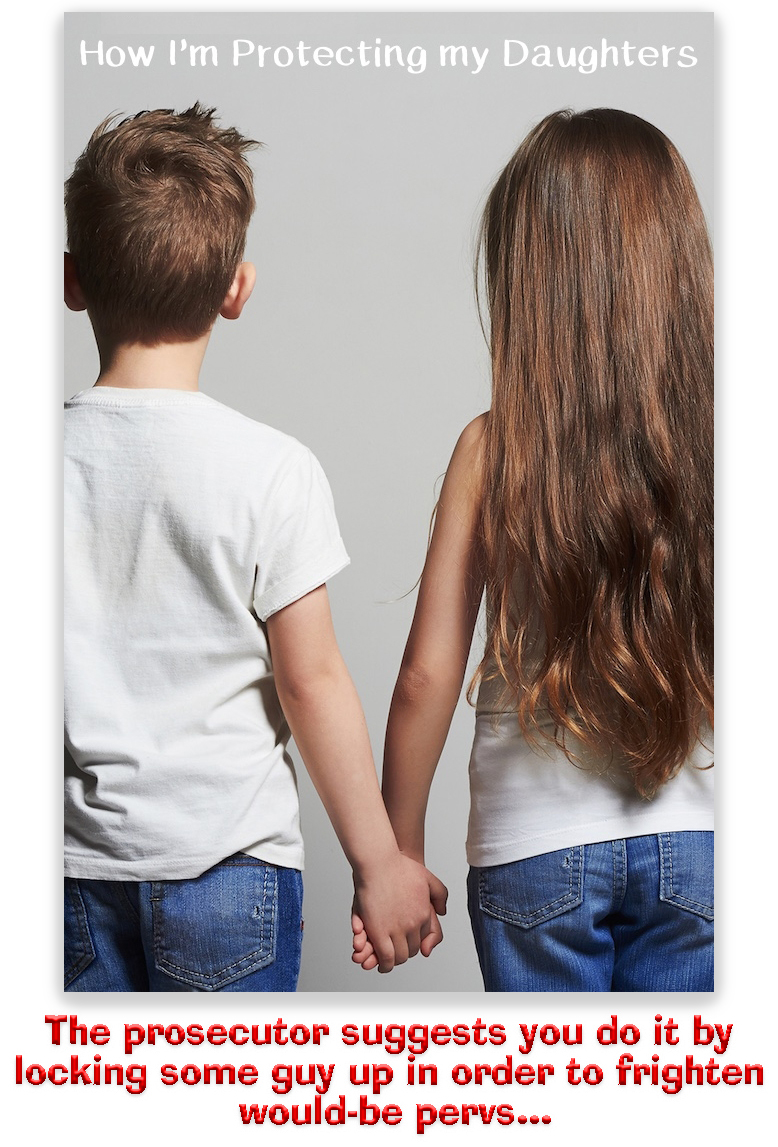We post news and comment on federal criminal justice issues, focused primarily on trial and post-conviction matters, legislative initiatives, and sentencing issues.

4TH CIRCUIT SENDS PROSECUTOR MESSAGE ABOUT SEX CRIMES AND HYPERBOLE
Charles Plymail was convicted of sexual assault in 1993 by a West Virginia state court. As the 4th Circuit put it last week, “The details of his conviction are disturbing. What is also disturbing is how long it took for him to receive a decision on his direct appeal: over twenty years.”
After his appeal was finally denied, Chuck filed a habeas corpus that eventually became a 28 USC § 2254 (which is the statute that permits state prisoners to go to federal court over unconstitutional state convictions). The federal district court rejected his claims. But last week, the 4th granted Chuck relief based on the prosecutor’s improper statements.
The trial evidence was mostly “he said, she said,” although the victims’ testimony was compelling. During closing arguments, Chuck’s attorney discussed the difficulty of disproving rape charges, focusing on how easy it was for an “angry, offensive” woman to harm “innocent… males.” He warned the men in the jury: “This is dangerous, gentlemen… it’s dangerous to even look at a woman today because she can shout ‘rape’ under any condition… and you have to disprove it and it’s tough because there are only two people there and society tends to believe the woman.”
 Rather than object to this pathetic defense argument, the prosecutor countered defense counsel’s moral shaming with his own. The prosecutor warned the jury of the existence of “trickster lovers” who disguise themselves to “your sons and daughters” as well-intentioned individuals, but have a “sweet tooth… for masochistic, sadomasochistic horror.” He exhorted the jury to send a message to these “trickster lovers” with a guilty verdict: “Think of the community,” he exhorted them, and deliver a verdict “for womankind, for all of us.”
Rather than object to this pathetic defense argument, the prosecutor countered defense counsel’s moral shaming with his own. The prosecutor warned the jury of the existence of “trickster lovers” who disguise themselves to “your sons and daughters” as well-intentioned individuals, but have a “sweet tooth… for masochistic, sadomasochistic horror.” He exhorted the jury to send a message to these “trickster lovers” with a guilty verdict: “Think of the community,” he exhorted them, and deliver a verdict “for womankind, for all of us.”
The Circuit was unamused. It ruled that the prosecutor’s closing violated Chuck’s right to due process. “Prosecutors must seek convictions based on the evidence as it applies to the elements of the offense. While we do not expect emotionless prosecutors to present antiseptic arguments, they may not seek a conviction based on prejudice or passions. Prosecutors violate this edict when they stray beyond the defendant’s crimes and ask the jury to convict in order to ‘send a message to the community’.”
 The prosecutor argued he was just responding to the improper arguments made by defense counsel. The 4th wasn’t buying it. “[T]wo wrongs do not make a right,” the 4th wrote. “Defense counsel’s misconduct does not grant the prosecutor a license to make otherwise improper arguments. A prosecutor must object to improper arguments, not merely respond in kind.”
The prosecutor argued he was just responding to the improper arguments made by defense counsel. The 4th wasn’t buying it. “[T]wo wrongs do not make a right,” the 4th wrote. “Defense counsel’s misconduct does not grant the prosecutor a license to make otherwise improper arguments. A prosecutor must object to improper arguments, not merely respond in kind.”
Plymail v. Mirandy, Case No 19-6412, 2021 US App LEXIS 23722 (4th Cir. Aug 10, 2021)
– Thomas L. Root


